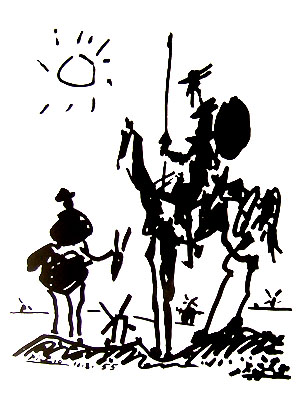Self Regulation
Self regulation is the idea that the body knows what is good and life-promoting, and that honoring the body's feelings and inclinations will lead to a life that is good, satisfying and just. It includes the belief that desire, and the pursuit of real pleasure do not lead to mayhem, and are compatible with a civil society. Passions only seem to be dangerous because, when they emerge in the presence of repression, they are greatly distorted. These distorted secondary drives then act as a secondary justification for the repression. Efforts that the ego makes to keep secondary drives in check constitute another layer of self-negation.
This self-negation is generally called self-control, and considered positive. But control really only means reasonable guidance of a force or movement toward its fit or intended goal.
The foundation of self-negation is the automatic filter of character.. However, over an entire life, character will leak a great deal of noxious secondary drive behavior anyway. Secondary conscious self-negation starts as the effort to plug these leaks. Self-negation evolves as the ideology that the ego, following ideas or rules, should be sole arbiter of what emerges in a person and in a person's life. Not all self-control is negating but repression hides easily within self-control because images of 'what is best' are used as a guide instead of feelings. Each bit of restraint is usually logically defensible, but a life lived solely that way becomes dehumanizing.
It is very difficult for anyone in our culture, to fully trust natural processes. It is strongly tempting even for therapists working in this tradition to replace the idea of self-regulation with the idea of a 'kinder, gentler self-negation' And in fact, it should be possible for this less oppressive 'control' to mimic the general scope of behavior that is seen in self-regulation. However, there is this very important difference. In self-regulation, it is the body and ego together that decide what the tasks are for the person, and self-control plays a role in managing actions realistically. In self-negation, the ego decides what the goals are according to an image, and proceeds cautiously if intensely in achieving those goals in a manner that is intended to pre-empt criticism.
Self-regulation has its roots in biology, but the ego can participate in self-regulation through principles. Principles are different from rules. Based on an intellectual analysis of past experience, rules are behavioral dictates that are applied compulsively, that is, without feelings. Principles are behavioral guides based on an understanding of past experience, including past feelings. Principles are applied judiciously and somewhat flexibly, in accord with present feeling. Rules are useful for large organizations or impersonal brief transactions. Close relationships (personal or therapeutic), benefit from principles.
